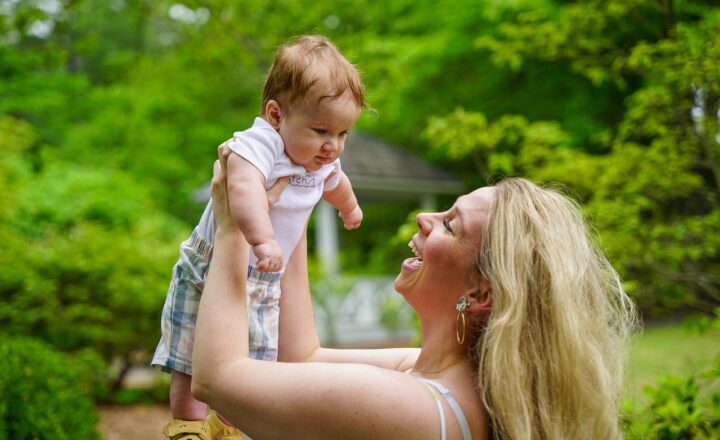A Guide to Caring for Elderly Pets: Veterinary Tips for Senior Animals
November 15, 2024

As our beloved pets age, they require special attention and care to ensure their quality of life remains high. Just like humans, senior animals experience various physical and emotional changes that can affect their well-being. This guide explores essential veterinary tips and strategies for caring for elderly pets, helping you navigate this tender stage of their lives.
1. Understanding the Aging Process in Pets
Pets are generally considered seniors when they reach around 7 years of age, but this can vary by species and breed. Smaller dog breeds tend to age more slowly than larger breeds. Here are some common signs of aging in pets:
- Decreased energy levels and increased sleeping time.
- Reduced mobility or joint stiffness.
- Changes in weight, either gaining or losing.
- Increased difficulty with grooming and elimination.
- Behavioral changes such as increased anxiety or irritability.
Acknowledging these changes helps pet owners adjust their expectations and modify care routines accordingly.
2. Regular Veterinary Check-ups
To keep your elderly pet healthy, regular veterinary visits are crucial. During these visits, the veterinarian will:
- Conduct thorough physical examinations to check for any abnormalities.
- Perform blood tests to monitor organ function and detect underlying health issues.
- Assess dental health, as many senior pets suffer from dental diseases that can cause pain and infection.
- Recommend updated vaccinations or treatments to prevent common diseases.
Plan for vet check-ups at least twice a year to catch any health problems early and ensure proper management of existing conditions.
3. Nutrition for Senior Pets
Nutritional needs change as pets age. Senior pets often require fewer calories due to decreased activity levels but may need more specific nutrients to support their health issues. Here are some guidelines:
- Choose Quality Senior Food: Look for formulations designed specifically for senior pets that support joint health, digestion, and overall well-being.
- Monitor Weight: Ensure your pet maintains a healthy weight since obesity can lead to serious health problems like diabetes and joint issues.
- Consider Special Diets: Depending on your pet’s health conditions, your veterinarian might recommend a special diet for kidney support or low-fat options.
- Support Digestive Health: Increasing fiber in their food can help with digestive issues and promote regularity.
Choosing the right food and monitoring their caloric intake can significantly affect your elderly pet’s vitality and health.
4. Exercise and Mental Stimulation
While senior pets require less exercise, they still need regular activity to keep their muscles toned and joints flexible. A balanced approach includes:
- Short Walks: Encourage light walks to promote joint health and maintain a healthy weight. Keep walks short and pace slow, adjusting them according to your pet’s energy levels.
- Interactive Toys: Use mental stimulation with puzzle toys or treats hidden in toys to engage their minds while they are resting physically.
- Gentle Playtime: Engage in light play activities that adapt to their physical capabilities, such as rolling a ball or light fetch sessions.
Regular gentle exercise and mental engagement can enhance your elderly pet’s mood and keep their bodies in better condition.
5. Comfort and Accessibility
As pets grow older, they may face mobility issues. Making your home comfortable and accessible can greatly improve their quality of life:
- Cozy Beds: Provide a soft, supportive bed in their favorite sleeping spot to relieve pressure on their joints.
- Easily Accessible Food and Water: Ensure food and water bowls are where they can easily reach them without straining or having to climb stairs.
- Assistive Devices: Consider using ramps or pet steps to help them access furniture and vehicles more easily, reducing the risk of injury.
- Maintain a Safe Environment: Minimize obstacles that could cause your pet to trip to prevent injuries as their vision and mobility decline.
Creating a comfortable and accessible environment allows your senior pet to enjoy a more comfortable lifestyle.
6. Pain Management and Health Monitoring
Many senior pets suffer from chronic pain due to arthritis or other conditions. It’s essential to monitor their behavior and consult with a vet for:
- Pain Relief Options: Veterinarians may recommend specific medications to alleviate pain and inflammation while improving mobility.
- Regular Observations: Keep an eye on any changes in behavior, such as reluctance to move, difficulty jumping, or whining when touched, as these can indicate pain.
- Supplements: Discuss joint supplements or other prescribed medications to assist with mobility and comfort levels.
Addressing pain management is crucial for ensuring your elderly pet remains active and comfortable.
7. Emotional Support and End-of-Life Care
Senior pets may experience cognitive decline, leading to confusion or anxiety. Providing emotional support becomes critically important:
- Consistency: Create a predictable routine for feeding, walking, and playtime to help maintain their comfort levels.
- Environmental Enrichment: Introduce calming elements like soft music or puzzle toys that engage their sense of hearing and sight without overstimulation.
- Palliative Care Options: Consult your veterinarian about end-of-life care options to prioritize your pet’s comfort in their final days.
Preparing yourself and your pet for the journey through aging can help create a peaceful experience in their twilight years.
Conclusion
Caring for elderly pets requires compassionate effort and dedication. By understanding their unique needs and adapting care, you can improve their quality of life during these precious years. Regular vet visits, proper nutrition, gentle exercise, emotional support, and effective pain management are essential for happy aging. Your loving attention can ensure that their senior years are filled with comfort, joy, and dignity.
In conclusion, remember that senior pets deserve love and care just as much as any other. Your devotion can greatly impact their lives, providing them with a fulfilling and enjoyable time while they age with grace.







